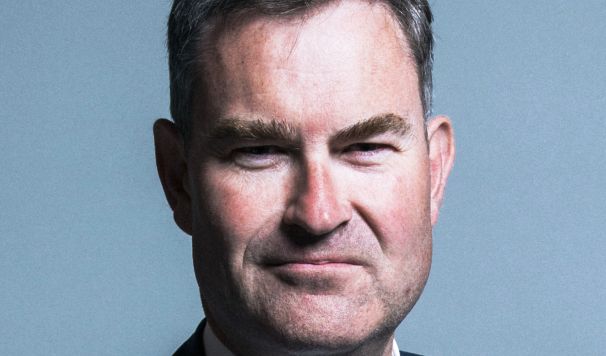Justice Secretary announces ambitious first steps in overhaul of Parole Board
Justice Secretary David Gauke has promised “much wider reforms” to bring increased efficiency to the Parole Board after its handling of the John Worboys case led to chair Nick Hardwick quitting.
Sweeping changes are planned after the Ministry of Justice (MoJ) published findings of its urgent January review of the organisation’s proc.
The comprehensive package of dramatic improvements includes initial legislation to immediately remove the ‘blanket ban’ on transparency and rule changes to allow the board to explain its decisions to victims, media and the public.
The proposals will, for the first time, also allow decisions to be challenged through a judge-led process that could in some circumstances be open to the public while the Government has vowed to ensure those in the Victim Contact Scheme (VCS) are automatically told of decisions that affect them.
The outcome of board diktats would remain “provisional” for a certain amount of time, giving victims the chance to voice their objections without having to resort to a judicial review.
Mr Hardwick said that while the MoJ’s review findings were “generally welcome”, significant “new resources” would have to be injected into the Parole Board “to avoid new backlogs”.
He said on Twitter that what the review findings say is “generally welcome, what it does not say is concerning”, adding “serious concerns” over the fact no mention is made of Parole Board independence.
Launching the measures on Saturday (April 28), Mr Gauke said: “We are going further and consulting on a new way to challenge Parole Board decisions that would be judge-led and could, in some circumstances, be open to the public. And we’re not stopping there.
“I also produce the terms of reference for our comprehensive review of the entire Parole Board, including whether we should in some circumstances name panel members, whether we should define the panel composition and what kinds of further scrutiny measures should be introduced.
“We will also improve the process for victims, who in this case were clearly let down. It is my ambition that the outcome of this process will mean victims have more confidence in the system.
“And we have moved at pace to address the shortcomings of the parole system which the Worboys case has brought to light. But we must take a balanced approach. I am determined to lead a thorough reform process.”
Also published are the terms of reference for the full review of all 27 Parole Board rules – allowing for consideration of whether certain panels should include a judge or psychiatrist, how the board’s decisions should be scrutinised internally before a decision is finalised and how further improvements can be made to transparency.
One immediate result of the review findings is the introduction of transparency to the parole process by amending Rule 25 to remove the blanket ban that prevents the Parole Board from disclosing information about its decision-making.
This change will also require the board to provide an overview of the arguments it heard in a case, the recommendations of expert witnesses, the offender’s progress and risk factors, the evidence provided by the offender and the reasons for the panel’s decision.
The removal of the ‘blanket ban’ and amending Rule 25 is an immediate first step on transparency, which ensures compliance with the ruling of the judicial review of the Worboys case.
In a statement, the MoJ said: “The department will carefully assess the impact this has on the Parole Board’s operation, on offenders, and on victims, including whether there are legal challenges, with a view to increasing transparency further, for example potentially automatically publishing summaries online.
“We will also consider, as set out in the terms of reference for the wider Parole Board Review, whether information about panel members and other details should in some situations be made public.
“The Parole Board’s decision to release John Worboys made clear the urgent need to overhaul the process of providing information to victims.
“As a result, numerous changes will be made to the VCS, including extending it to victims of more types of offences, for example road traffic offences resulting in serious injury, and to victims in cases where a serious charge lies on file but has not resulted in a conviction.
“Immediate improvements will also be made to the VCS, including new training for victim liaison officers, better working with other agencies to ensure services are more joined up and making it easier for victims to opt in to the scheme at a later stage in the offender’s sentence.
“At the same time, the department will explore the potential for changing the scheme so that victims are asked at the beginning to opt-out if they don’t want to be kept informed, rather than to opt-in if they do.”
The Government’s consultation will run until the end of July and the findings published later this year.
Last month, Mr Gauke told MPs that two victims have won a landmark ruling in the Worboys case because he did not mount a legal challenge.
The Justice Secretary – facing calls to consider his position – claimed that by not launching a judicial review on behalf of the MoJ over the board’s decision to release the ‘black cab rapist’ he left the victims “better placed” to make their argument.
The High Court decision last month means Worboys will remain behind bars at least until the Parole Board re-examines the case.
In November, the board decided to approve his release with “stringent” licence conditions, arguing its decision was based on appropriate evidence.
But three High Court judges said in London that the board must make a “fresh determination”.
After Mr Hardwick’s sudden departure, Mr Gauke told <i>Police Professional</i> that he was looking to a new leadership team seeing through “vital changes”, adding: “It is crucial the Parole Board now takes all necessary measures to ensure that public confidence is maintained in its decision-making processes.”







